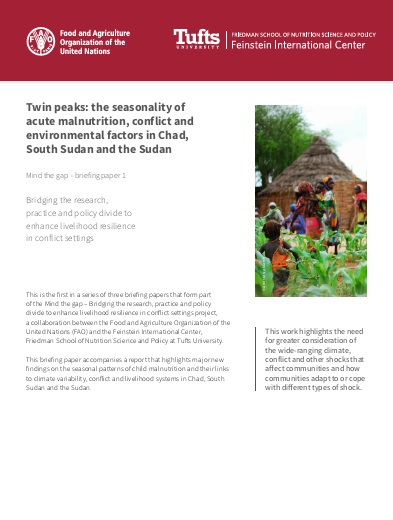This briefing paper highlights major new findings on the seasonal patterns of child malnutrition and their links to climate variability, conflict, and livelihood systems in Chad, Sudan, and South Sudan.
Contrary to long-held assumptions about acute malnutrition escalating in the lean season, our data show that there are two peaks of acute malnutrition. The first and larger peak occurs at the end of the dry season, followed later by a second, smaller peak after the lean season. Our analysis demonstrates a significant relationship between acute malnutrition, conflict trends, and environmental factors.
The findings underscore the importance of environmental variability and the persistence of climate, conflict, and other shocks in relation to livelihood resilience and transformation over time. The findings raise specific considerations for data collection, future research, programming, and policy, which are detailed in the report and briefing paper.







